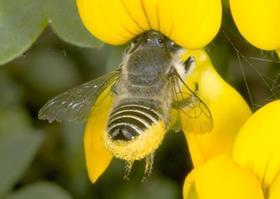
A UK study led by researcher Richard Gill, of Royal Holloway, University of London, and published in the journal Nature has demonstrated the harmful effects of pesticides on bees, the planet's top pollinators.
The research discovered a link between the use of two pesticides, neonicotinoid and pyrethroid, and a decline in both the lifespan and foraging behaviour of bumblebees.
Each pesticide was shown to have an impact – neonicotinoid led bees to collect less pollen at a slower rate, while pyrethroid increased their death rate considerably – with the two also working together to create a combined effect.
Low-level exposure to the two pesticides was found to be more harmful to bumblebee colonies than either pesticide on its own, raising the question of whether current methods for regulating pesticides are truly adequate, since they consider only lethal doses of single pesticides.
The study is likely to increase pressure on the government from UK environmental groups to impose a ban on the sale of such pesticides.



